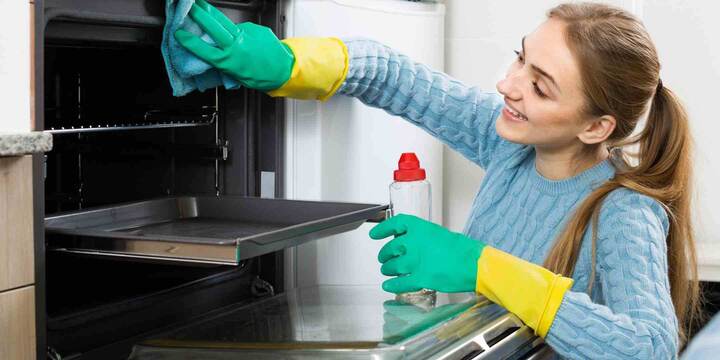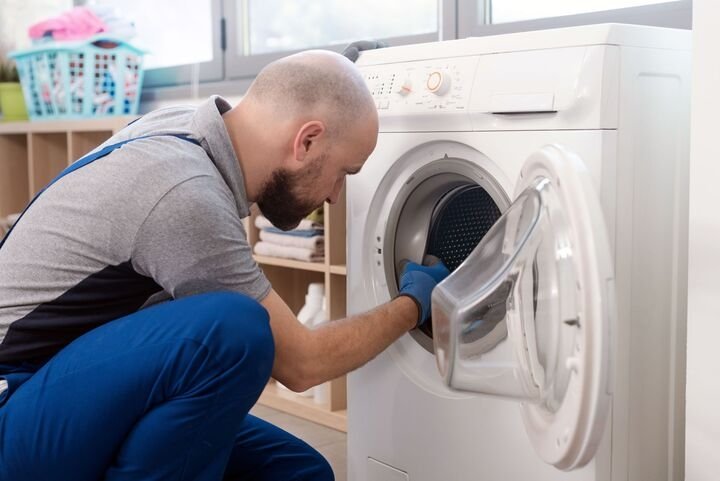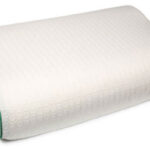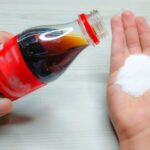Home appliances are essential for making daily life more convenient. To ensure these appliances function effectively and last longer, you can apply some simple tips below.
Tips to Prolong the Lifespan of Home Appliances
The following are simple tips to help you use durable and efficient home appliances.
Regular Cleaning
Regular cleaning keeps appliances clean and functioning well, which is key to prolonging their lifespan. Some appliances, like washing machines, refrigerators, and microwaves, are prone to dust, grime, and food residue build-up. This can affect performance and lead to malfunctions if not cleaned promptly.

Regular cleaning is the key to prolonging the lifespan of home appliances. (Photo: HerZindagi)
Develop a habit of frequently wiping down refrigerators, washing machines, and microwaves to prevent dust accumulation and inhibit bacterial growth.
Proper Usage
Incorrect usage habits can reduce efficiency and even cause fire hazards. To prolong the lifespan of home appliances, follow the manufacturer’s instructions carefully, ensuring stable and durable performance.
For instance, with water heaters, turn them off when not in use to prevent overheating. When using air conditioners, adjust temperatures reasonably, avoiding frequent on-off cycles or setting temperatures too low, which can overload the system.
Regular Inspection and Maintenance

Regular maintenance helps detect potential issues early on, extending the lifespan of home appliances. (Photo: Storables)
Many families only call for repairs when appliances break down, but for stable performance, regular inspections and maintenance are crucial. This process helps identify underlying problems and prevents minor issues from escalating into major breakdowns.
For example, with washing machines, regularly inspect and clean the filter, water pipes, and drum. Refrigerators require regular checks on door seals; if they’re loose or not sealing properly, they should be replaced to prevent cold air leakage. Air conditioners, meanwhile, should be serviced every 3-6 months, including cleaning the filters, outdoor units, and indoor coils.
Placement in Dry and Ventilated Areas
The location of appliances also impacts their lifespan. They should be placed in dry, well-ventilated areas with low humidity, as moisture can damage internal components and cause metal parts to rust.
Refrigerators, washing machines, and air conditioners will have reduced lifespans if placed in high-humidity areas or exposed directly to sunlight. Ensure the surrounding space is clean and airy.
Buy Quality Products and Use Genuine Accessories
Investing in quality products from the outset is another tip for prolonging appliance lifespan. Reputable brands with clear origins often use more durable materials and offer safer features.
Some appliances come with accessories like filters, power cords, or batteries. Using genuine accessories ensures safety and prolongs appliance life. Conversely, low-quality accessories can lead to issues like fires, electrical leaks, or appliance damage.
According to VTC News
“The Dangers of Using the Wrong Cutting Board: How to Keep Your Food Safe and Clean”
The humble chopping board is a kitchen essential, but it can also be a breeding ground for bacteria and a source of food contamination. Some types of chopping boards can be particularly hazardous to your health, so it’s important to know which ones to avoid. These three types of chopping boards should be thrown out immediately to reduce the risk of foodborne illnesses and keep your family safe.
The Non-Stick Pan’s “Blacklisted”: This Alternative Cookware is Preferred Instead
The non-stick coating on a non-stick pan is highly susceptible to damage and peeling due to everyday use and improper handling. With regular use, the coating can start to break down, exposing the base metal and compromising the pan’s non-stick properties. This can lead to a sticky situation, literally, with food beginning to adhere to the surface and making cleanup a chore. Additionally, improper cleaning methods, such as using abrasive sponges or harsh chemicals, can expedite the deterioration process, leaving you with an uneven and ineffective cooking surface. It is crucial to understand the delicate nature of non-stick coatings to extend the lifespan of your cookware and maintain its performance.



































